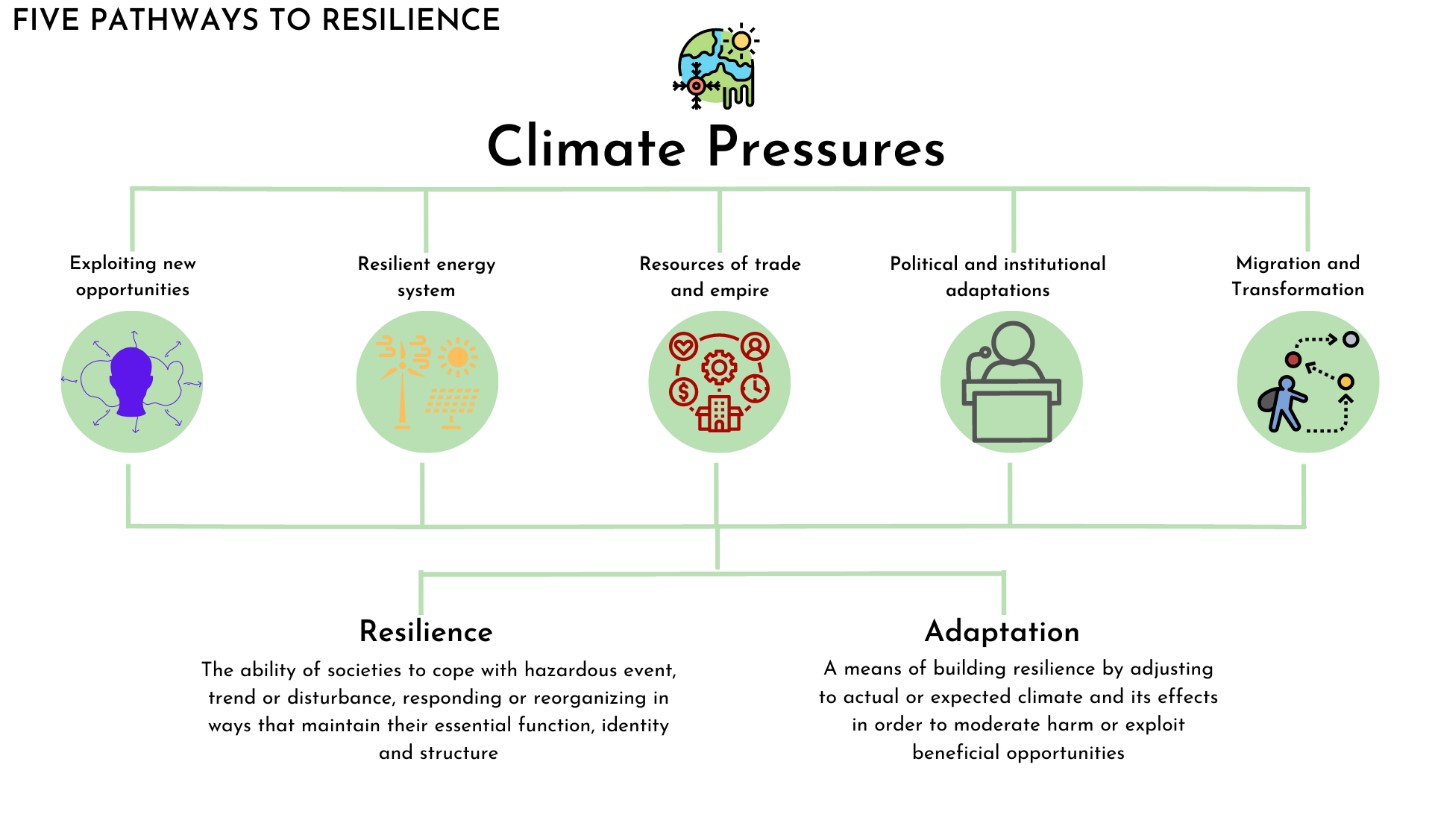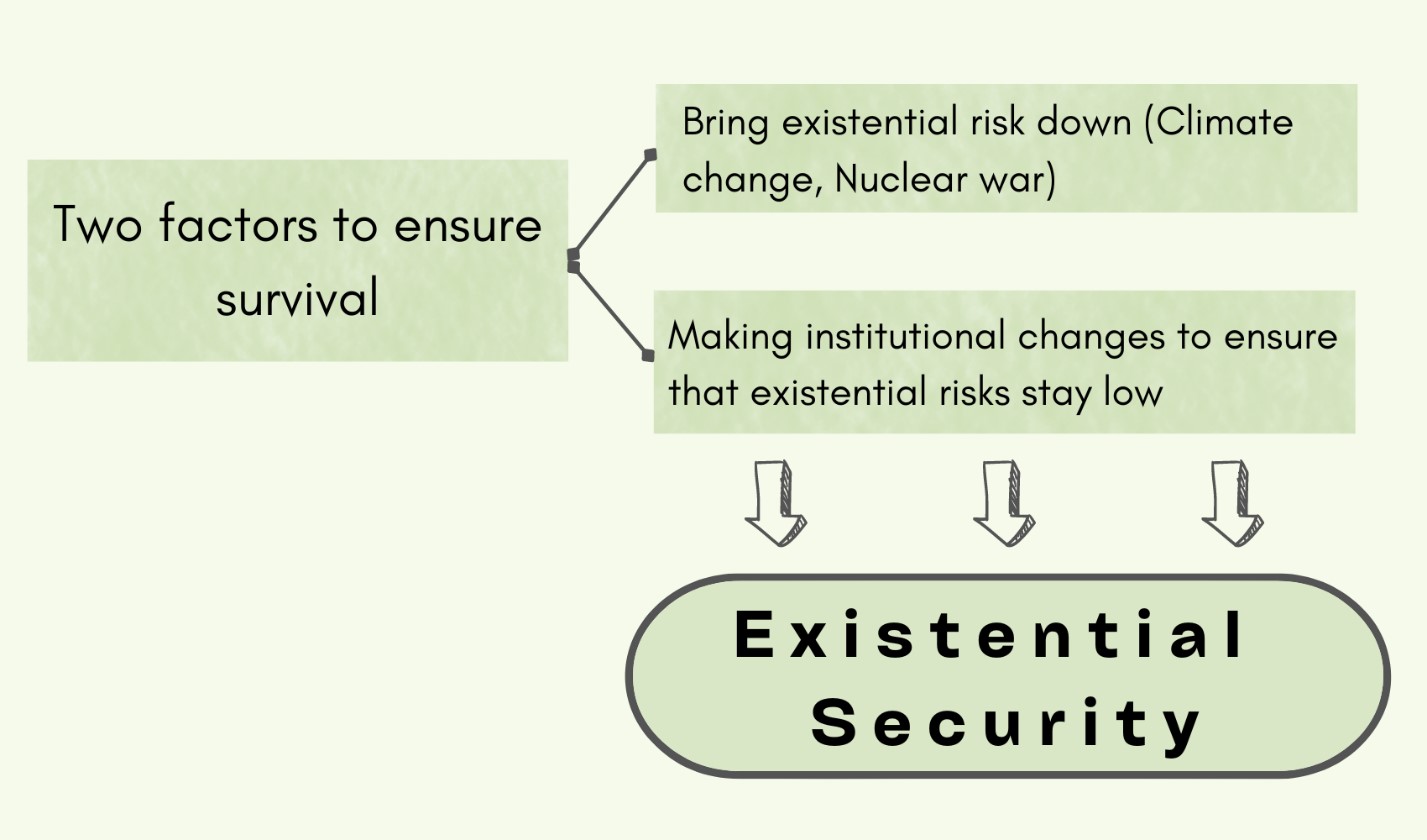“Uncertain Times, Unsettled Lives: Shaping our future in a transforming world”
Presenter: Loren Chloe BALAOING
Date:November 09, 2022
Presentation: Part I, Chapter I: A New Uncertainty Complex, Pages 51-71
Keywords: Anthropocene, Epoch, Resilience, Uncertainty Complex
Hello everyone. Loren here, I am a new member of the Abe Research group, and this marks my first entry in this blog! As Tom mentioned before, this is the continuation of the UNDP Human Development Report 2021-2022, in which I read the second half of Part I, Chapter I: A new uncertainty complex.
Summary
This chapter talked about HCS (History of Climate and Society), and how natural climate change (before anthropogenic causes) influenced the lives of early human civilization and how it will help us determine the state of humanity in the future. HCS explained that the different climate and weather changes in the past lead to the adaptation and resilience of our ancestors. An example is how the Norse settlements vanished because they failed to adopt to the chilling climate (Degroot, 2018). The Intergovernmental Panel on Climate Change (IPCC) defined resilience as the ability of coupled human and natural systems to “cope with hazardous event or trend or disturbance, responding or reorganizing in ways that maintain their essential function, identity, and structure.” There are five pathways to resilience as IPCC stated in this chapter. These five pathways paved how the modern human civilization is operating now.

We are now living in the period of uncertainty due to Anthropocene. As a recap, Anthropocene denotes an epoch characterized by the geological impact of the human beings on planet Earth, as we are living now at present, but when did it start? The word Anthropocene was only given a formal word by Crutzen and Stoermer in 2000, but we are already experiencing it way before the term was introduced. As mentioned in this chapter, anthropologists believe that it started during the nuclear arms race in the cold war, when influential countries and their allies asserted dominance by nuclear weapons. However, with the concern of what nuclear testing will bring to the biodiversity here on Earth, and how the Earth would be uninhabitable as clearly painted in Jonathan Schell’s “The Fate of the Earth” in 1982, the nuclear arms race finally ended in 1991.
This new epoch questions extinction and survival. What are institutions doing now to protect this existential crisis? There are two factors mentioned in this chapter: to bring the existential risks like climate change and nuclear war down and to make sure that these stays low by making institutional changes. The chapter also mentioned about the consideration of economic security as it is fundamental to wellbeing, and that policymakers need to also consider justice and peace when making institutional changes to keep up with the times.

From lowering our carbon dioxide emissions to transitioning into renewable sources, we are now shifting into a “green mindset” to contribute to our existential security. However, there is a need to consider justice and peace in these transitions, as transitions that are half baked can only lead to transferring the risk to another aspect, and overall, may do worse than better. Notably, resource-rich countries suffered from violence, poverty, and social inequality (Aas Rustad, et al., 2022; Leonard, et al., 2022)
We are in a period of uncertainty complex brought about planetary pressures, societal transformations, and necessary action for change. We are also asked to protect the survival of our species through sustainability. To achieve this, Tim Mulgan mentioned that we need to think of muligenerationalism, where we do things that will positively influence the following generations to come, even after this generation will be long gone.
Discussion
How does multigenerationalism affect sustainability?
- The way I understood this is like the traditions we learned from our ancestors. Sometimes, we do something in our culture, and when we ask our parents why we do it, their answer is because our ancestors did it too, and we are keeping the tradition. As we are growing older, we also need to instill the sustainable way of thinking to our descendants to add more years to our existence.
- Some lab mates shared that mindset plays a role in this. A notable example shared was waste management in their country, where policy makers focus on economic approach rather than the environmental approach. Also, the influence of our culture affects our mindset, and how other countries may not be as aware of the things happening around the world, because this information may be limited.
- There is also a discussion on how the younger generation is different from the older ones, and how mindset is “set” for the older generation and may not be flexible for change. However, the younger generation is “selfish”, but more aware that vulnerable countries are affected the most when it comes to climate change, social justice, etc.
- The mindset of the new generation is changing, where some people in this generation is actively fighting for social justice and peace, but is this enough? We need to change our ways, if not, nothing will happen.
The book discussion ended with me sharing a movie that I watched multiple times with my nephew back in the Philippines: Dr. Seuss’s the Lorax, with the quote “Unless someone like you cares a whole awful lot. Nothing is going to get better. It is not.” If you have the time, I suggest watching the whole movie. This concludes my blog for the book discussion. Please stick around for the next entries!
References
Aas Rustad, S., Reagan, R., Bruch, C., Dupuy, K., Mwesigye, F., McNeish, J.-A., and VanDeveer, S. 2022. “Green Curses Renewable Energy and Conflict in Africa.” Background paper for Human Development Report 2021/2022, UNDP–HDRO, New York
Crutzen, P. J., and Stoermer, E. F. 2000. “The Anthropocene.” Global Change Newsletter 41: 17–18.
Degroot, D. (2018). Climate change and society in the 15th to 18th centuries. WIREs Climate Change, 9(3). https://doi.org/10.1002/wcc.518
Leonard, A., Ahsan, A., Charbonnier, F., and Hirmer, S. 2022. “The Resource Curse in Renewable Energy: A Framework for Risk Assessment.” Energy Strategy Reviews 41: 100841.
Programme, U. N. D. (2022). Human Development Report 2021/2022: Uncertain Times, Unsettled Lives: Shaping our Future in a Transforming World (pp. 51–71). United Nations.
Seuss, Dr. (1972). The Lorax. HarperCollins Children’s Books.
Schell, J. (1982). The Fate of the Earth. Alfred a Knopf Incorporated.